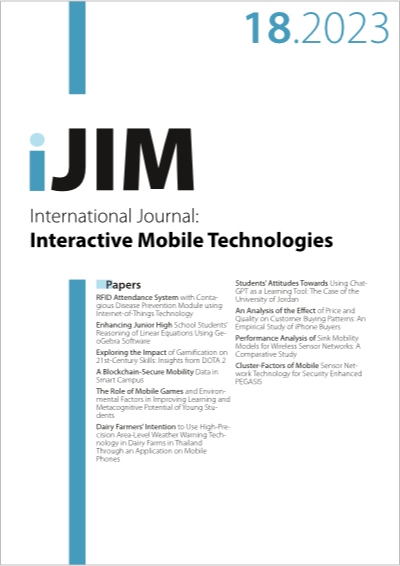Exploring the Impact of Gamification on 21st-Century Skills: Insights from DOTA 2
DOI:
https://doi.org/10.3991/ijim.v17i18.42161Keywords:
gamification, 21st-century skills, skill development, educationAbstract
This study explores how gamification in DOTA 2 cultivates 21st-century skills (problem-solving, teamwork, communication, and critical thinking). It supports DOTA 2 as an immersive platform for skill development. The study investigated various sources, including player surveys, meticulous gameplay analysis, academic research reviews, and expert opinions. By synthesizing this evidence, the study sheds light on DOTA 2’s potential to hone and refine abilities. Player surveys revealed individuals’ acquisition of adaptability in dynamic situations, cultivation of strategic thinking abilities, and enhancement of effective team collaboration skills. An in-depth examination of gameplay unveiled discernible patterns of collaborative effort and cognitive processes aimed at resolving challenges resembling real-world situations. Existing scholarly literature substantiates these findings and highlights gaming’s role in developing 21st-century competencies. The study emphasizes the potential implications of its results for stakeholders, such as educators, policymakers, and game developers, offering valuable opportunities for the practical application of gamification strategies. It sparks further investigation and exploration of unexplored research avenues. This study contributes to the growing body of literature recognizing gaming’s substantial advantages in fostering crucial 21st-century skills.
Downloads
Published
How to Cite
Issue
Section
License
Copyright (c) 2023 Agariadne Dwinggo Samala, Ljubisa Bojic, Diego Vergara Rodríguez, Blanka Klimova, Fadhli Ranuharja

This work is licensed under a Creative Commons Attribution 4.0 International License.



